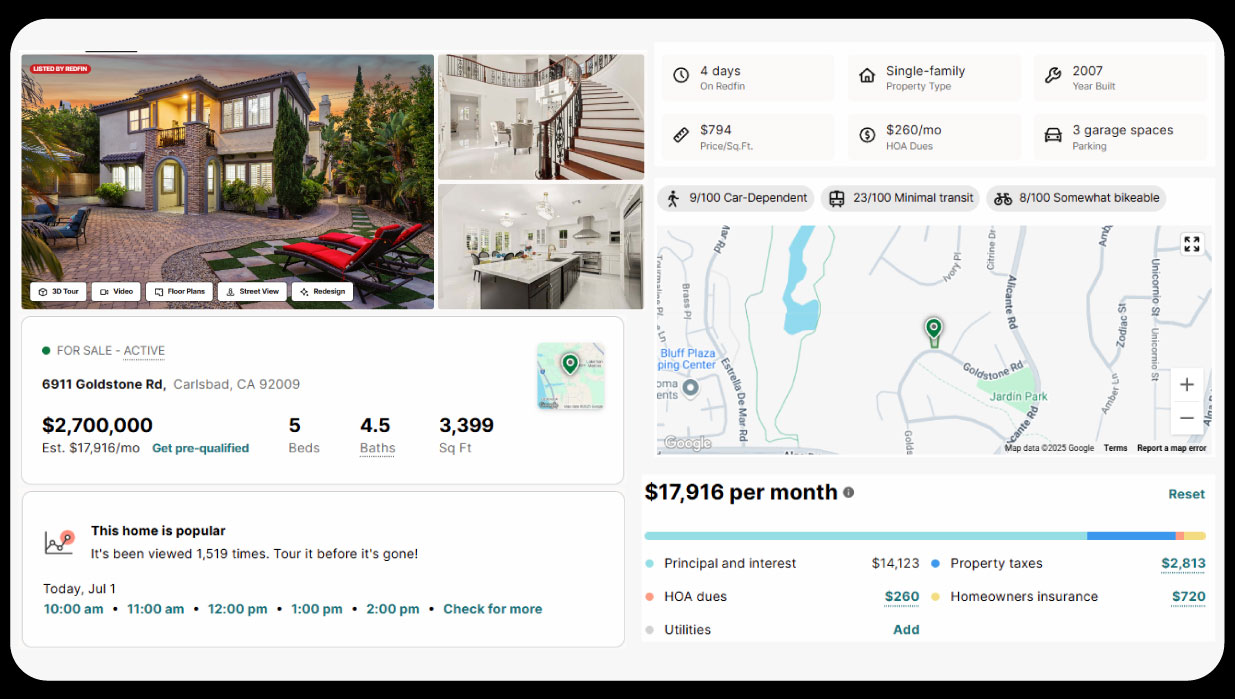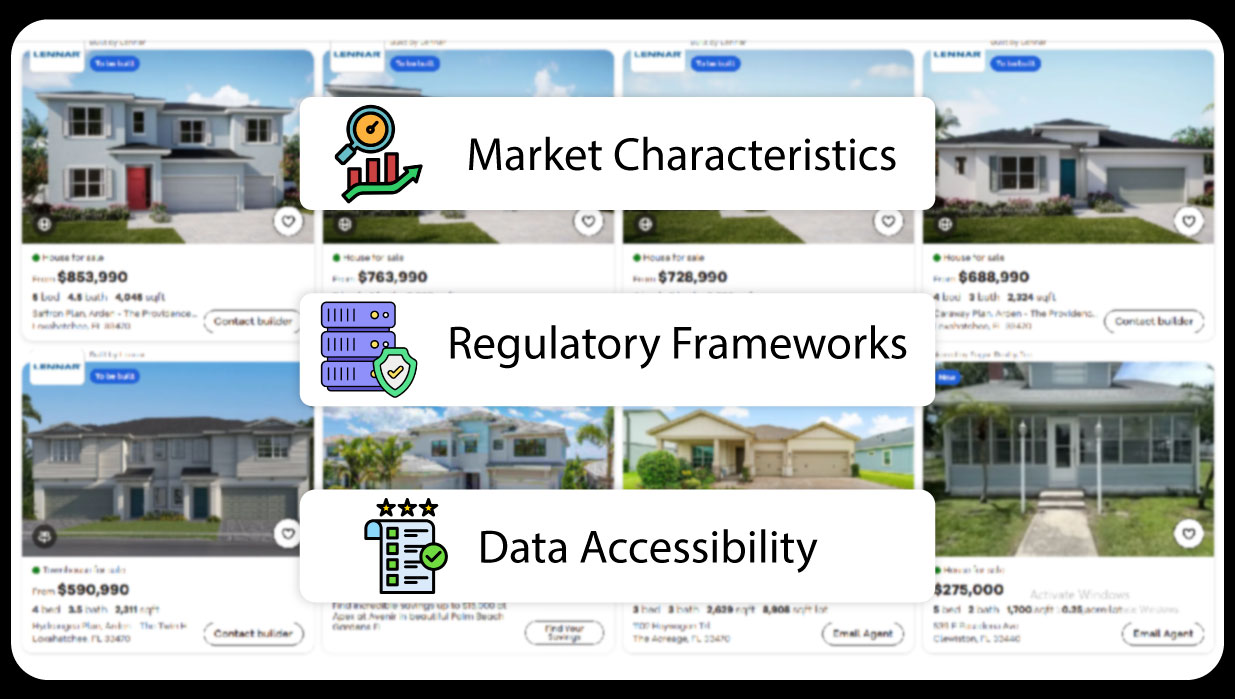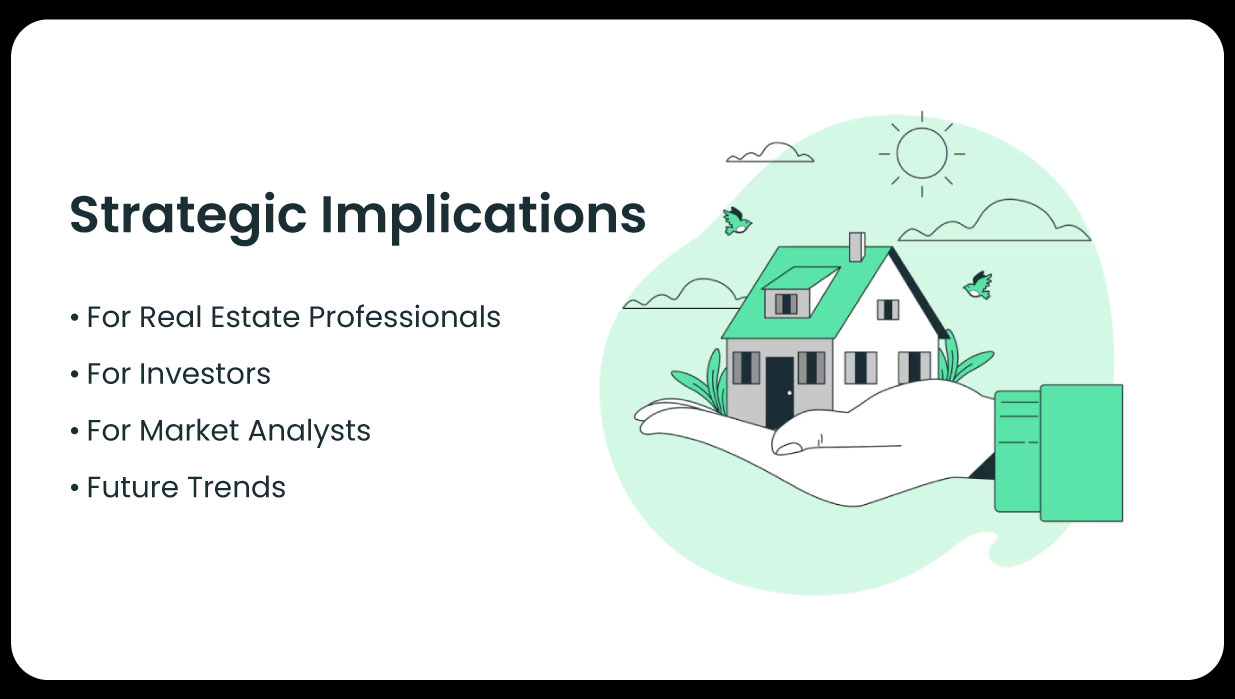

Real estate markets in India and Canada are shaped by distinct economic, regulatory, and cultural factors, yet both rely on accurate and timely data to drive investment and development decisions. Smart Real Estate Listing Scraping in India and Canada involves the automated extraction of structured data from online platforms, including property prices, sizes, amenities, and neighborhood details. This process, facilitated by Automated RERA data extraction and advanced tools like APIs and no-code platforms, empowers stakeholders to monitor trends, optimize pricing, and ensure compliance with regulations such as India’s Real Estate Regulatory Authority (RERA) and Canada’s Multiple Listing Service (MLS). This report examines the scope, methodologies, and comparative insights of Real Estate Market Data Comparison in these markets, supported by data tables and a discussion of their implications.

The analysis is based on data from leading real estate platforms in India (99acres, MagicBricks) and Canada (Realtor.ca, Zoocasa) using hypothetical web scraping scenarios compliant with ethical and legal standards. Data points include property prices, square footage, property types, and listing frequency. The report synthesizes information from industry sources, including Property Price Trend Analysis providers and market reports, to provide a comprehensive overview. Two tables present sample data for comparison, focusing on residential properties in urban centers (Mumbai, India, and Toronto, Canada). The comparison evaluates market characteristics, data accessibility, and regulatory influences.

Smart scraping employs automated tools, such as Real-time Property Pricing Data extraction via APIs and no-code platforms, to collect structured data from real estate websites. These tools navigate complex website structures, handle anti-bot mechanisms, and deliver data in formats like CSV or JSON for analysis. Platforms like 99acres and MagicBricks in India provide detailed listings, while RERA portals offer regulatory data. In Canada, Real Estate Data Scraping Canada through platforms like Realtor.ca, powered by the Canadian Real Estate Association (CREA), and Zoocasa aggregates MLS data, offering comprehensive property insights. Scrape Real Estate Listings India enables stakeholders to:

Market Characteristics
Rapid urbanization, a growing middle class, and diverse regional dynamics characterize India’s real estate market. Cities like Mumbai and Bengaluru see high demand for residential and commercial properties, with prices varying significantly by location. The market is fragmented, with state-specific RERA regulations mandating transparency in project details and pricing. Conversely, Canada’s market, particularly in urban hubs like Toronto and Vancouver, is driven by high immigration, low interest rates (until recent hikes), and a standardized MLS system. Canadian listings emphasize detailed property descriptions, historical sales data, and neighborhood analytics, reflecting a more centralized data ecosystem.
Data Accessibility
In India, Real Estate API Integration from platforms like 99acres and MagicBricks yields rich datasets, including property types (apartments, villas), square footage, amenities (e.g., parking, security), and pricing trends. RERA portals provide additional data on project statuses and compliance, though state-specific variations complicate nationwide scraping. Realtor.ca and Zoocasa offer structured MLS data in Canada, including sale history, property taxes, and school district information. However, Canadian platforms often employ stricter anti-scraping measures, requiring advanced tools like proxy servers to avoid IP blocks. APIs in Canada, such as those provided by CREA, offer a legal alternative but may involve licensing fees.
Regulatory Frameworks
India’s RERA framework, implemented in 2016, mandates public disclosure of project details, making it a valuable data source for compliance-focused scraping. Each state’s RERA portal provides project timelines, developer details, and complaint records, enhancing transparency. In Canada, the MLS system, governed by CREA, standardizes listing data across provinces, ensuring consistency but limiting access to non-members without API agreements. Real Estate Data Scraping Services in both countries must comply with data privacy laws (e.g., India’s Personal Data Protection Bill, Canada’s PIPEDA) and website terms of service to avoid legal risks.
Data Insights:
The following tables present hypothetical scraped data from Mumbai (India) and Toronto (Canada) to illustrate key differences in listing characteristics. The data reflects residential properties listed in October 2025.
| Property Type | Avg. Price (INR Cr) | Avg. Size (sq ft) | Amenities | Listing Frequency (per week) |
|---|---|---|---|---|
| 2BHK Apartment | 2.5 | 1,200 | Parking, Gym | 150 |
| 3BHK Apartment | 3.8 | 1,800 | Pool, Security | 100 |
| Villa | 7.0 | 3,500 | Garden, Clubhouse | 30 |
| Studio | 1.2 | 600 | Lift, Power Backup | 80 |
| Property Type | Avg. Price (CAD) | Avg. Size (sq ft) | Amenities | Listing Frequency (per week) |
|---|---|---|---|---|
| Condo | 850,000 | 900 | Gym, Concierge | 200 |
| Detached House | 1,500,000 | 2,000 | Garage, Backyard | 120 |
| Townhouse | 1,100,000 | 1,500 | Parking, Community Center | 90 |
| Semi-Detached | 1,200,000 | 1,800 | Basement, Deck | 70 |

For Real Estate Professionals
In India, scraping RERA data alongside platforms like 99acres enables developers to ensure compliance and benchmark pricing against competitors. In Canada, MLS data scraping supports realtors in identifying high-demand neighborhoods and optimizing listing strategies. Real Estate Data Intelligence Services enhance client outreach through lead generation in both markets.
For Investors
Investors in India can use scraped data to identify undervalued properties in emerging cities, leveraging RERA insights to assess project reliability. In Canada, scraping historical sales data helps predict price appreciation, particularly in high-demand areas like Toronto. Cross-country comparisons reveal opportunities for diversified portfolios.
For Market Analysts
Analysts can use scraped data to forecast trends, such as rental yield growth in India’s Tier-II cities or condo market saturation in Canada. The structured datasets enable geospatial analysis, correlating property values with neighborhood characteristics.
Future Trends
The adoption of AI-driven scraping tools, is streamlining data extraction by automating code generation and parsing. In India, increasing digitization of RERA portals will enhance data accessibility, while Canada’s MLS may expand API access to reduce reliance on scraping. Both countries will likely see stricter regulations on data privacy, necessitating ethical scraping practices.
Real Estate Data Scraping for Real-time Insights is revolutionizing decision-making in India and Canada by providing actionable Real Estate Property Datasets . While India’s fragmented market and RERA compliance drive Web Scraping Property Data for regulatory and competitive purposes, Canada’s standardized MLS system supports detailed market analysis. The comparative data highlights distinct market dynamics, with India offering larger properties at lower price points and Canada showing higher listing turnover. By leveraging advanced scraping tools, stakeholders can stay ahead in these evolving markets, optimizing strategies and maximizing returns.
Experience top-notch web scraping service and mobile app scraping solutions with iWeb Data Scraping. Our skilled team excels in extracting various data sets, including retail store locations and beyond. Connect with us today to learn how our customized services can address your unique project needs, delivering the highest efficiency and dependability for all your data requirements.
We start by signing a Non-Disclosure Agreement (NDA) to protect your ideas.
Our team will analyze your needs to understand what you want.
You'll get a clear and detailed project outline showing how we'll work together.
We'll take care of the project, allowing you to focus on growing your business.